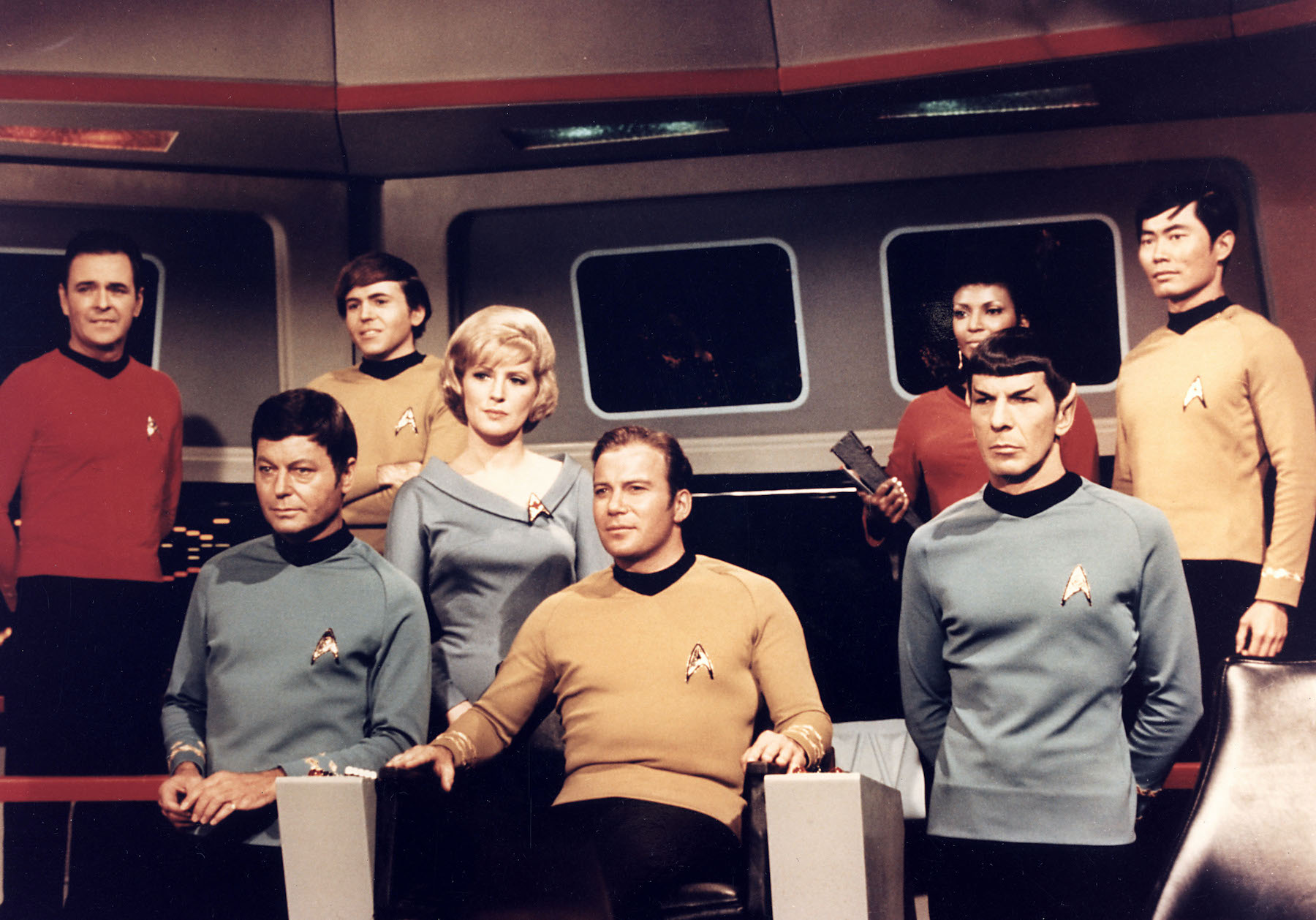
- Select a language for the TTS:
- UK English Female
- UK English Male
- US English Female
- US English Male
- Australian Female
- Australian Male
- Language selected: (auto detect) - EN
Play all audios:
Mr Spock might have called it “illogical”, but Captain Kirk — aka William Shatner — has just given a whole new meaning to “comeback”. At the age of 90, the star of _Star Trek _will be
catapulted into space for the first time next week and, we hope, come back in one piece. He will be sitting alongside Jeff Bezos, the Amazon tycoon. Instead of the Starship Enterprise, they
will cross the final frontier in a rocket-powered capsule and return to Earth in a parachute-assisted landing. It’s all reminiscent of the earliest manned space travel more than half a
century ago. That was also the era when _Star Trek _first wowed global television audiences with futuristic contraptions, most of which have yet to become reality. Kirk’s catchline — “Beam
me up, Scotty” — is based on a device that still belongs to fantasy and is likely to remain so in our lifetimes. Not even Bezos’s billions are enough to create the new technologies that
could bring space travel within the means of anyone but the super-rich. Instead, he is doing what he does best: trying to make money out of it. Blue Origin, his corporate space vehicle,
claims to have sold $100 million of tickets. His well-heeled customers are presumably so eager to outdo their neighbours and rivals that they are prepared to risk their lives (and spend $400
grand) for a few minutes of weightlessness in orbit and a glimpse of the Earth from space. There is something to be said for the privatisation of space, however unaffordable it is to the
rest of us. No official space agency would dream of allowing a nonagenarian astronaut on board. Shatner is only able to subject himself to the stress of flying at three times the speed of
sound thanks to his part in a documentary. Provided he is ready to die in the attempt — and Bezos is ready to run that risk — there may be some scientific value in the experiment. Our ageing
society needs to remove some of the barriers to the elderly enjoying new experiences, even dangerous ones, rather than putting their health before everything else. And who could resist the
romance of the old boy finally venturing into the far blue yonder? Yet the sheer extravagance of Kirk’s last mission prompts one critical reflection. If the rich are to turn the Earth’s
upper atmosphere into a kind of adventure playground, shouldn’t they clear up after themselves? In 2019, the US Space Surveillance Network reported some 20,000 large manmade objects orbiting
the planet — the debris of past flights, from old rockets and defunct satellites to such esoterica as the ashes of Kirk’s erstwhile colleague Scotty (the actor James Doohan), smuggled into
the International Space Station 13 years ago and released into the ether. But these objects are only the ones that can be tracked. Some 128 million pieces of debris smaller than one
centimetre are orbiting the Earth, too, and hundreds of thousands of slightly larger ones too. They are referred to in the trade as MMOD (Micrometeoroid and Orbital Debris). The smaller
debris damages sensitive scientific instruments in space, such as telescopes; the larger ones pose a risk of collision. Because space is virtually unregulated and those who litter it are
unaccountable, the scale of this form of pollution is increasing exponentially. Something must be done — and soon. So here is a worthy mission for Jeff Bezos, Sir Richard Branson and any
other entrepreneurs hoping to profit from the vanity of aspiring amateur astronauts. How about cleaning up the Earth’s space ? What an example of environmental philanthropy Bezos, Branson
and the rest would be setting by devoting a fraction of their fortunes to waste disposal in space? Quite apart from the safety hazards posed by orbital obstacles, the light pollution this
blanket of rubbish causes hinders both scientific research and our enjoyment of that most precious of all commodities — the night sky. The cost of a clean-up to Bezos & Co might be
astronomical, but it wouldn’t only be astronomers who would thank them for tidying up after themselves. A generation hence, who will know that Jeff Bezos was once the world’s richest man?
Even if they do, who will care? You can be rich as Croesus, but still forgotten — unless you are as creative in your philanthropy as you are in business. Building monuments to yourself may
not be enough, either. Shelley’s _Ozymandias _still has the last word on that: “Look on my Works, ye Mighty, and despair!” Harnessing new technology to help humanity, on the other hand,
offers at least the hope of true immortality. Alfred Nobel made up for the destruction wrought by his invention, dynamite, by setting up the prizes that bear his name. The Microsoft
monopolist Bill Gates is well on the way to eradicating a number of infectious diseases and saving innumerable lives. Perhaps Jeff Bezos, whose delivery business has caused so much waste to
end up in landfill, could return the world’s favour by clearing up our cosmic junkyard. A MESSAGE FROM THEARTICLE _We are the only publication that’s committed to covering every angle. We
have an important contribution to make, one that’s needed now more than ever, and we need your help to continue publishing throughout the pandemic. So please, make a donation._





